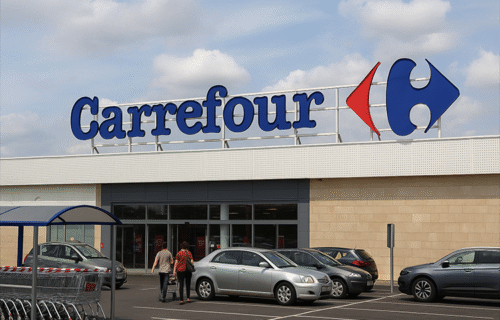Carrefour, one of Europe’s largest retail groups, is entering a new phase of global restructuring that has seen it scale back or withdraw from several international markets. The company has confirmed or is reportedly considering exits from Italy, Poland, Romania, and parts of the Middle East as it repositions itself around core markets such as France, Spain, and Brazil.
In Italy, Carrefour formally entered exclusive negotiations in July 2025 to sell its entire business to the NewPrinces Group in a deal valued at around €1 billion. The decision underscores Carrefour’s determination to simplify its structure and withdraw from markets where profitability has been persistently low. In parallel, reports indicate that the company is reviewing its operations in Poland and Romania, two markets where it has struggled to compete with rapidly expanding discount and proximity chains. While Carrefour has not confirmed any divestment, financial institutions including J.P. Morgan and BNP Paribas are reported to be advising on potential transactions.
Beyond Europe, Carrefour’s long-time franchise partner Majid Al Futtaim has closed or rebranded stores in Jordan, Kuwait, Bahrain and Oman under the HyperMax name. This development effectively marks the disappearance of the Carrefour brand from several Gulf markets, although the company remains active elsewhere through its franchise operations.
Industry analysts point to a common pattern across these moves. Carrefour tends to divest or review its business in markets where it lacks sufficient scale, faces structural challenges, or operates store formats that no longer align with local demand. The hypermarket model that once powered Carrefour’s expansion is losing traction across Europe, where consumer behaviour increasingly favours smaller stores, convenience shopping and online delivery. Analysts view Carrefour’s current restructuring as a transition toward a leaner, more focused business centred on core markets, proximity retail and e-commerce rather than broad global coverage.
According to the Financial Times, the company has been seeking ways to boost its market valuation amid stagnating share performance and tightening competition, with selective disposals forming part of this strategy. Gulf News has observed that while Carrefour continues to thrive in regions where the large-format retail model remains relevant, its European operations face pressure from rising costs and changing shopping habits. A commentary from DRC Discount Retail Consulting highlights that in Poland, Carrefour’s management has weighed both divestment and restructuring options due to weak margins and strong local competition. Similarly, a brokerage report from Whitelight Capital points to growing tensions within Carrefour’s franchise model in France as a source of operational risk and strategic reconsideration.
Several recurring factors underpin Carrefour’s recent and potential exits. The company continues to face narrow margins and intense price competition in mature grocery markets. Its management has repeatedly stressed the need to focus on geographies where scale advantages and stronger profitability can be achieved. At the same time, the shift away from traditional hypermarkets reflects an adaptation to evolving consumer preferences, where proximity stores, discount operators and digital channels increasingly dominate. Local market dynamics in Poland and Romania, where competition is fierce and operational costs high, have reinforced the case for a potential portfolio reshuffle. Meanwhile, structural issues in Carrefour’s franchise network and rising energy and labour costs across Europe have added further pressure to streamline operations.
Experts view these moves as part of a broader strategic repositioning rather than isolated market retreats. Carrefour appears to be concentrating its resources on areas where it can maintain a competitive edge while reducing exposure to low-margin markets and complex operational structures. By redirecting capital into stronger regions, the group aims to improve profitability, protect margins and support ongoing digital and logistics transformation.
Carrefour’s confirmed withdrawals include the closure of operations in Oman in January 2025 and in Jordan in November 2024, along with the rebranding of stores in Bahrain and Kuwait by its Gulf partner Majid Al Futtaim. In Europe, the sale of its Italian business marks the most significant divestment to date, while its presence in Poland and Romania remains under review.
In its most recent investor communications, Carrefour reaffirmed its focus on improving efficiency, expanding its loyalty programme Le Club Carrefour, strengthening private-label ranges and tightening promotional strategies. The company has not publicly confirmed further market exits, but the sale of Italy and continuing portfolio reviews indicate a clear direction: concentrating on markets where it can sustain long-term competitiveness and moving away from the traditional hypermarket model that once defined its global identity.
Source: CIJ EUROPE Analysis Team
